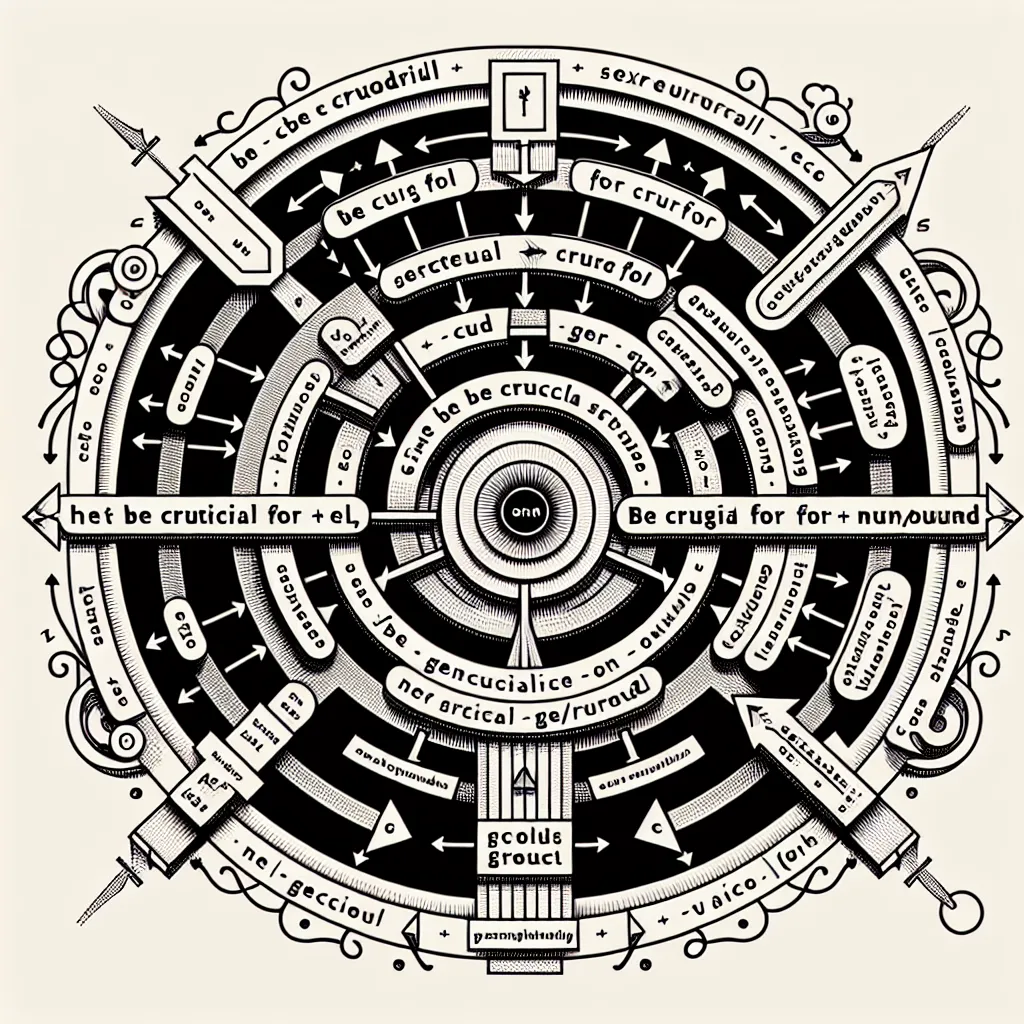The phrase “be crucial for + noun/gerund” is a powerful and versatile expression that frequently appears in IELTS exams. Understanding its usage can significantly enhance your performance in both the writing and speaking sections. Let’s delve into the intricacies of this structure and explore how to apply it effectively in your IELTS responses.
Nội dung bài viết
Understanding the Structure and Its Significance in IELTS
The phrase “be crucial for + noun/gerund” is used to emphasize the critical importance of something. It’s a structure that examiners look for as it demonstrates a high level of language proficiency and the ability to express complex ideas.
Examples:
- Education is crucial for personal development.
- Regular exercise is crucial for maintaining good health.
- Clear communication is crucial for successful teamwork.
- Proper time management is crucial for achieving academic success.
- Innovation is crucial for economic growth.
In these examples, the structure highlights the indispensable nature of the noun or gerund that follows “crucial for”. This construction allows you to express strong opinions and support your arguments effectively in IELTS tasks.
 Crucial For Structure
Crucial For Structure
Grammar Rules and Usage
The basic formula for this structure is:
[Subject] + [be verb] + crucial for + [noun/gerund]
It’s important to note that:
- The subject can be a noun, pronoun, or gerund.
- The “be” verb should agree with the subject in number and tense.
- After “crucial for”, you can use either a noun or a gerund (verb + -ing).
Let’s analyze some examples:
-
“Technology is crucial for modern education.”
- Subject: Technology (noun)
- Be verb: is (present tense, singular)
- Crucial for + noun: crucial for education
-
“Practicing regularly is crucial for improving language skills.”
- Subject: Practicing regularly (gerund phrase)
- Be verb: is (present tense, singular)
- Crucial for + gerund: crucial for improving
-
“Clean water was crucial for the survival of the expedition.”
- Subject: Clean water (noun phrase)
- Be verb: was (past tense, singular)
- Crucial for + noun: crucial for survival
Applying the Structure in IELTS Writing
In IELTS Writing Task 2, using “be crucial for” can help you express your ideas more precisely and persuasively. Here’s an example paragraph:
“Environmental protection is crucial for sustainable development. While economic growth is important, it should not come at the cost of our planet’s health. Implementing green technologies is crucial for reducing carbon emissions, and public awareness is crucial for promoting eco-friendly practices. Governments and individuals must recognize that preserving natural resources is crucial for ensuring a livable planet for future generations.”
This paragraph demonstrates how the structure can be used multiple times to emphasize key points without sounding repetitive. It showcases a range of vocabulary and complex sentence structures, which are essential for achieving a high band score in IELTS Writing.
Enhancing IELTS Speaking Responses
In the Speaking test, using “be crucial for” can help you provide more detailed and sophisticated answers. For example:
Question: “What qualities do you think are important for success in a career?”
Answer: “I believe several qualities are crucial for career success. Firstly, adaptability is crucial for navigating the ever-changing job market. Secondly, strong communication skills are crucial for building professional relationships and conveying ideas effectively. Lastly, continuous learning is crucial for staying relevant in one’s field, as industries are constantly evolving.”
This response uses the structure three times, each highlighting a different quality. It demonstrates a good command of English and the ability to express complex ideas fluently.
Common Mistakes and How to Avoid Them
-
Incorrect verb agreement:
- Incorrect: “These factors is crucial for success.”
- Correct: “These factors are crucial for success.”
-
Using “to” instead of “for”:
- Incorrect: “Education is crucial to achieving success.”
- Correct: “Education is crucial for achieving success.”
-
Overuse in a single sentence or paragraph:
- Avoid: “Technology is crucial for education, which is crucial for development, which is crucial for economic growth.”
- Better: “Technology is crucial for education, which in turn plays a vital role in development and economic growth.”
-
Forgetting to use a noun or gerund after “for”:
- Incorrect: “Clean air is crucial for healthy.”
- Correct: “Clean air is crucial for healthy living.”
-
Using an adjective instead of a noun/gerund:
- Incorrect: “Exercise is crucial for healthy.”
- Correct: “Exercise is crucial for health.”
Advanced Usage for Higher Band Scores
To achieve higher band scores (7+), consider these advanced applications:
-
Combine with other structures:
“Not only is innovation crucial for economic growth, but it also plays a pivotal role in solving global challenges.” -
Use in complex sentences:
“While financial stability is crucial for personal well-being, research suggests that maintaining strong social connections is equally crucial for overall life satisfaction.” -
Incorporate into topic sentences:
“The preservation of indigenous languages is crucial for maintaining cultural diversity, a factor often overlooked in globalization debates.” -
Employ in conclusions:
“In conclusion, addressing climate change is crucial for ensuring a sustainable future, requiring immediate and concerted efforts from all nations.” -
Use with comparatives:
“In the digital age, data security is becoming increasingly crucial for protecting personal and corporate information.”
By mastering these advanced uses, you can demonstrate a sophisticated command of English, impressing IELTS examiners and potentially boosting your band score.
Conclusion
The structure “be crucial for + noun/gerund” is a valuable tool for expressing importance and necessity in IELTS tasks. By understanding its proper usage and practicing its application in various contexts, you can enhance your writing and speaking responses significantly. Remember to use it judiciously, combine it with other complex structures, and always ensure grammatical accuracy. With these strategies, you’ll be well-equipped to tackle a wide range of IELTS topics and showcase your language proficiency effectively.
For further improvement in your IELTS preparation, you might also want to explore other useful structures such as “be well-known for + noun/gerund” and “be adept at + noun/gerund”. These structures can complement your use of “be crucial for” and help you express a wider range of ideas with precision and fluency.


